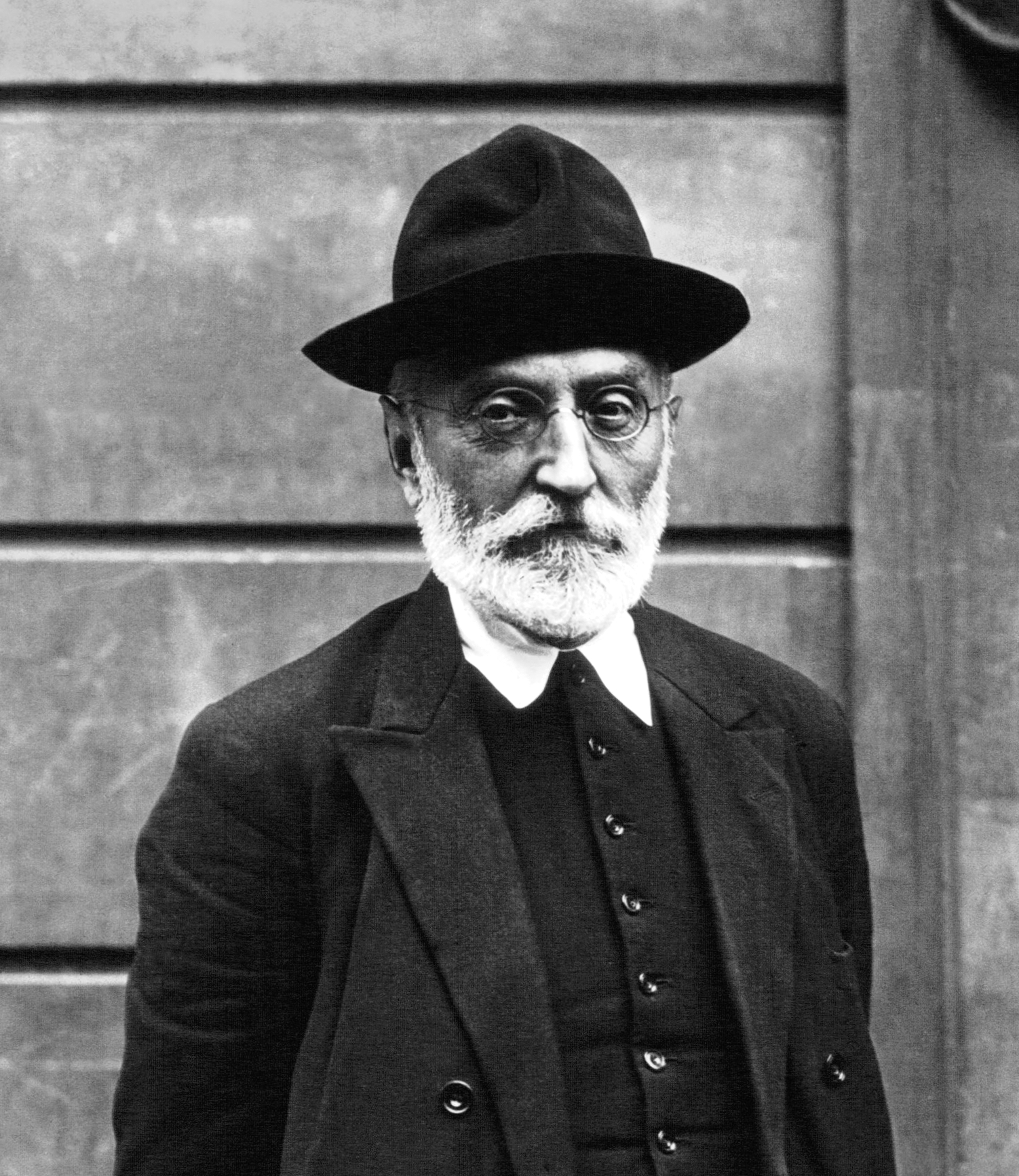Miguel De Unamuno Y Jugo nejznámější citáty
„Oženit se je velmi snadné, být ženatý - toť problém.“
Varianta: Oženit se je velmi lehké, být ženatý - to je problém.
Miguel De Unamuno Y Jugo: Citáty o lidech
A byl jsem obviňován z reakcionářství, ba i z jesuitismu. Budiž. Nu a co?
Zdroj: Miguel de Unamuno. O člověku, pro člověka, Michael Fousek http://sl.ff.cuni.cz/files/users/u3/35fousek.pdf
Miguel De Unamuno Y Jugo citáty a výroky
„Historie znamená znovu snít, co bylo.“
Dílo
Zdroj: Unamuno, Miguel de, Mlha, Odeon, Praha 1971, s. 46.
Miguel De Unamuno Y Jugo: Citáty anglicky
“Love is a contradiction if there is no God.”
The Tragic Sense of Life (1913), VII : Love, Suffering, Pity
Credo quia absurdam — I believe because it is absurd
The Tragic Sense of Life (1913), Conclusion : Don Quixote in the Contemporary European Tragi-Comedy
The Tragic Sense of Life (1913), Conclusion : Don Quixote in the Contemporary European Tragi-Comedy
The Tragic Sense of Life (1913), X : Religion, the Mythology of the Beyond and the Apocatastasis
The Tragic Sense of Life (1913), V : The Rationalist Dissolution
The Tragic Sense of Life (1913), Conclusion : Don Quixote in the Contemporary European Tragi-Comedy
“Reason perhaps teaches certain bourgeois virtues, but it does not make either heroes or saints.”
The Tragic Sense of Life (1913), XI : The Practical Problem
The Tragic Sense of Life (1913), III : The Hunger of Immortality
“Faith which does not doubt is dead faith.”
Fe que no duda es fe muerta.
La Agonía del Cristianismo (The Agony of Christianity) (1931)
The Tragic Sense of Life (1913), VI : In the Depths of the Abyss
The Tragic Sense of Life (1913), XI : The Practical Problem
The Tragic Sense of Life (1913), VIII : From God to God
The Tragic Sense of Life (1913), X : Religion, the Mythology of the Beyond and the Apocatastasis
The Tragic Sense of Life (1913), VIII : From God to God
The Tragic Sense of Life (1913), VIII : From God to God
The Tragic Sense of Life (1913), VII : Love, Suffering, Pity
The Tragic Sense of Life (1913), Conclusion : Don Quixote in the Contemporary European Tragi-Comedy
The Tragic Sense of Life (1913), III : The Hunger of Immortality
The Tragic Sense of Life (1913), IV : The Essence of Catholicism
The Tragic Sense of Life (1913), VII : Love, Suffering, Pity
The Tragic Sense of Life (1913), VII : Love, Suffering, Pity
The Tragic Sense of Life (1913), IV : The Essence of Catholicism
The Tragic Sense of Life (1913), VIII : From God to God
Tres novelas ejemplares y un prólogo [Three Exemplary Novels and a Prologue] (1920); Two Mothers
The Tragic Sense of Life (1913), X : Religion, the Mythology of the Beyond and the Apocatastasis
The Tragic Sense of Life (1913), VIII : From God to God
The Tragic Sense of Life (1913), VII : Love, Suffering, Pity
Vanidad del Mundo, cap. xxi.
The Tragic Sense of Life (1913), Conclusion : Don Quixote in the Contemporary European Tragi-Comedy
“Use harms and even destroys beauty. The noblest function of an object is to be contemplated.”
El use estropea y hasta destruye toda belleza. La función más noble de los objetos es la de ser contemplados.
Niebla [Mist] (1914)
